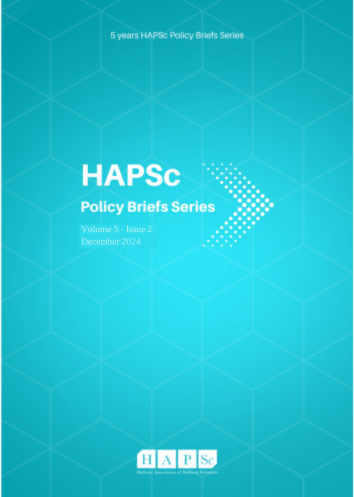European Policy for Economic and Social Cohesion: Community Support Frameworks & NextGenerationEU - Comparative Historical Review
Resumen
The European Union (EU) has long pursued policies aimed at fostering economic and social cohesion among its member states, addressing disparities and promoting convergence. This paper provides a comparative historical review of two initiatives: the Community Support Frameworks (CSFs) and the NextGenerationEU (NGEU). While CSFs have historically anchored cohesion policy, NGEU represents a novel and ambitious response to contemporary challenges. By analyzing their frameworks, funding mechanisms, and impacts, the paper highlights their respective roles in shaping EU cohesion policy. Recommendations for integrating lessons from both initiatives to inform future cohesion strategies are presented. Economic and social cohesion is both a fundamental prerequisite and a goal for the advancement of European integration. The Common Market, the functioning of the Economic and Monetary Union (EMU), and unified monetary policy require redistributive policies aimed at reducing regional inequalities within the European Union. Consequently, the Structural Policies (SP) of the EU, which seek to support the real convergence of economic structures and levels of development, are among the most critical issues to manage. Greece's convergence toward the average EU level of prosperity has been linked to the scale, duration, and type of aid provided by the Community. The consistent increase in EU funds has been a key political and economic objective for Greece, with Development Programs contributing inflows equivalent to 4-5% of its GDP. This study aims to offer a comparative assessment of the Community Support Frameworks (CSFs: First, Second, and Third) in Greece and to objectively compare outcomes with similar applications in Ireland, Spain, and Portugal. The study begins with a historical review and the necessity of EU Structural Policies, examining their structure, institutions, and guiding principles. It then focuses on Greek CSFs, including their planning processes, implementation, monitoring, and evaluation, providing a critical appraisal of their macroeconomic and political effects while analyzing causes of their inefficiencies. Finally, it compares the results of SP in Greece with other indicative EU member states, concluding that economic and social cohesion requires the design and implementation of extensive, integrated, and coherent Community policy actions. Achieving substantive convergence relies on decisive interventions by the EU Budget, which must be strengthened to support the full implementation of EMU, potentially reaching 5-7% of the Union's GDP.
Article Details
- Cómo citar
-
Agkoli , P. (2024). European Policy for Economic and Social Cohesion: Community Support Frameworks & NextGenerationEU - Comparative Historical Review. HAPSc Policy Briefs Series, 5(2), 8–12. https://doi.org/10.12681/hapscpbs.40773
- Sección
- Articles

Esta obra está bajo una licencia internacional Creative Commons Atribución 4.0.
Authors retain copyright and grant the journal right of first publication with the work simultaneously licensed under a Creative Commons Attribution License that allows others to share the work with an acknowledgement of the work's authorship and initial publication in this journal.


